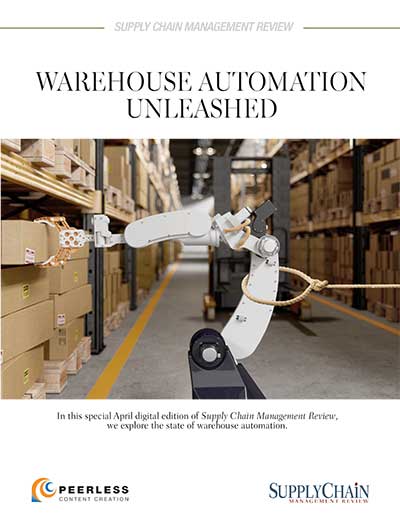Editor’s Note: Guilherme Frederico Associate Professor of Supply Chain and Operations Management – School of Management – Federal University of Paraná - UFPR - Brazil
Maturity management is one of the most important aspects to be considered by supply chain managers. Supply chain management in higher levels of maturity takes supply chains to a better level of performance as well as more resilient against potential disruptions due to risks occurrence.
In case of surge of coronavirus is likely that more mature supply chains will be able to minimize possible disruptions to be caused by the effect of this virus in comparison with less mature ones. But how maturity management can improve resiliency in supply chains? First, it is important to understand what maturity in supply chain management means.
Maturity in supply chain management can be defined as the level of development which supply chains are in terms of their management dimensions. When we talk about maturity, it is important to understand the characteristics of each level of maturity for each dimension of supply chain management in order to understand the stage of development which that dimensions is classified. These levels can varies from basic stage up to advanced stage. These dimensions that are the main drivers to become supply chains more mature are presented as follows:
Collaboration: collaboration in terms of information share between focus company, suppliers and customers allow better visibility about how supply chain is performing. For instance, the visibility of level of inventories by suppliers may take them to be more responsive against possible shortages in order to avoid disruptions in supply chains. Also, collaboration with regards supply chain strategy (e.g. joint supply chain design, shared resources) takes supply chains to a more robust network which generates a better resiliency level.
Integration: more integrated process (plan, source, make, delivery, return) between the supply chain members implicates in a seamless supply chain flow which generate faster responses against demand variation and inventory shortages. Responsiveness is an important dimension of performance in terms of supply chain maturity and more responsive supply chains trends to take them to a more robustness level in terms of their resilience as well.
Technologies: Disruptive technologies are playing important role on supply chains in the context of Industry 4.0. Technologies such as Internet of Things, Robotics, Additive Manufacturing, Cloud Computing and Big Data Analytics are taking supply chains to a higher level of responsiveness and integration, optimizing supply chains processes and then contributing to become supply chains more resilient as well.
Management Methods: Management methods such as Systematic Risk Management, Project Management Methodologies, Leadership and People Management, Lean and Agile Management, Customers and Suppliers Relationship Management collaborate to cause more responsiveness and efficiency to supply chains consequently improving their resiliency against the virus outbreak consequences.
Performance Measurement: Systematic performance measurement must be taken in place in supply chains in order to provide the performance visibility and cause proactive behavior in decision making of actions by supply chain managers. These actions may avoid disruptions on the supply chain flow against possible risks from the coronavirus effects.
Strategic Focus: supply chain management must be viewed as highly strategic area by the leadership of organizations. If this is not followed, it is more than likely that effective priorities (e.g. resources allocation, capital investment) will not be properly given to the required supply chain decisions, reducing the capacity in effectively reacting to the imminent disruptions from the deployments of virus outbreak.
Environment Adequacy: Understand and be compliant with the requirements from the environment which supply chains are involved is highly important to keep continuity on the supply chain flows. This is much more important to Global Supply chains in which compliance issues can varies a lot. Even in an urgent situation, compliance requirements must be accomplished being that a matter that may guarantee the resiliency condition for supply chains.
Resources Alignment: resources aligned with customer's needs take supply chains to a more mature stage. Adequate capacity of plants and distribution centers, capable and advanced transportation and handling assets/fourth-party logistics, advanced production systems, skilled workers are examples of resources which may foster supply chain maturity and guarantee a higher resiliency level.
The evaluation of the aforementioned dimensions in terms of their level of development is highly important to determine how effective supply chains can be against the Coronavirus outbreak. Obviously, achieving higher level of maturity implicates in strategic decisions which takes time in the majority of decisions. However, it is important that supply chain leaders be able to understand what is the real level of development of their supply chain management as well as recognize that structural decisions may be needed from now.
SC
MR

Latest Supply Chain News
- Tech investments bring revenue increases, survey finds
- Survey reveals strategies for addressing supply chain, logistics labor shortages
- Israel, Ukraine aid package to increase pressure on aerospace and defense supply chains
- How CPG brands can deliver on supplier diversity promises
- How S&OP provides the answer to in-demand products
- More News
Latest Resources

 Explore
Explore
Business Management News
- Survey reveals strategies for addressing supply chain, logistics labor shortages
- How CPG brands can deliver on supplier diversity promises
- How S&OP provides the answer to in-demand products
- AI, virtual reality is bringing experiential learning into the modern age
- Tips for CIOs to overcome technology talent acquisition troubles
- There is still work to do to achieve supply chain stability
- More Business Management
Latest Business Management Resources

Subscribe

Supply Chain Management Review delivers the best industry content.

Editors’ Picks





